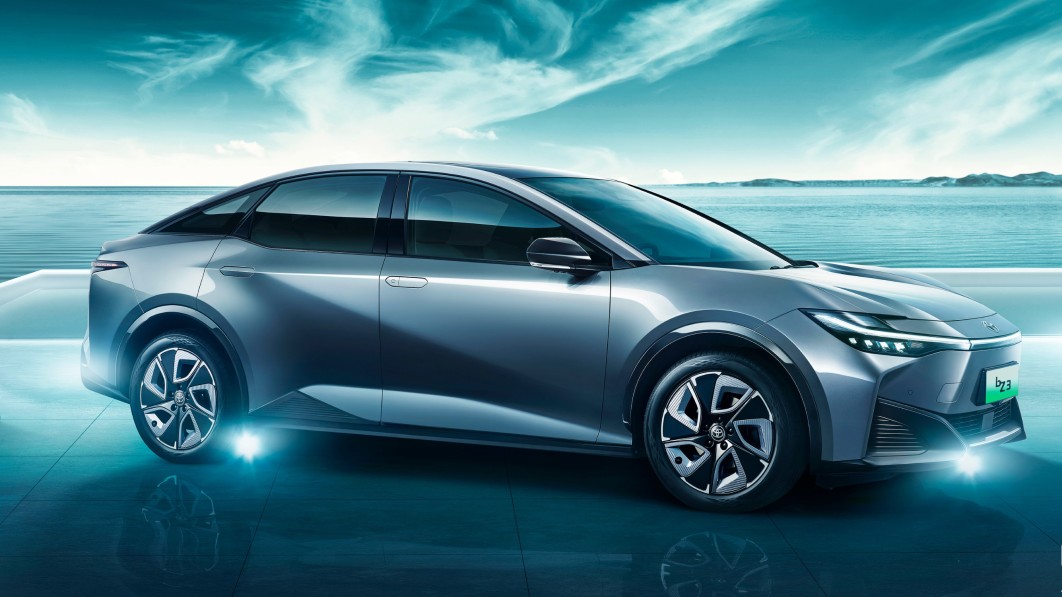
Toyota has launched its first followup to the all-electric bZ4X. Thankfully its name, the Toyota bZ3, is a little easier to remember. It helps if you think of “bZ” as a family of electric vehicles, as the company has stated, with the initials standing for “Beyond Zero” (as in zero emissions). Whereas the bZ4X is an all-wheel-drive crossover (hence the “4X”), the bZ3 is a sedan that seems poised — and named — to go after the Tesla Model 3.
It’s underpinned by Toyota’s global e-TNGA platform for EVs. However, the bZ3’s battery pack is built by Chinese partner BYD. Toyota says that when combined with its many years of hybrid experience, presumably in technologies such as regenerative energy recapture, the total range is over 373 miles. That is no doubt helped by a drag coefficient of 0.218, which ranks with the best of the latest EV crop.
Toyota didn’t disclose the bZ3’s power output, but according to China’s Ministry of Industry and Information Technology the car will be offered with either 178 or 238 horsepower outputs. BYD’s lithium iron phosphate Blade batteries are said to have better energy density and safety than other designs. Toyota allays fears of battery decay by promising they will retain 90 percent of their capacity after 10 years.
Dimensionally, the bZ3’s footprint is very close to that of the Model 3, just a hair bigger in every metric. Styling takes after the bZ4X, with a front graphic that Toyota likens to a hammerhead shark. Inside, the dash aims for a minimalist cool aesthetic with just a screen for the instrumentation and a second, larger screen for auxiliary controls governed by a dial-like input. The steering wheel is both flat-bottomed and flat-topped, but is, thankfully, not a yoke.
Some reports say the car will cost the CNY equivalent of just $28,000, significantly cheaper than the Model 3. That latter starts at $36,000 in China, even after a sizable price drop announced just today.
With the bZ3 announcement, Toyota says there will be more additions to the bZ family to come. In the past, it has committed to seven bZ models. However, if rumors about Toyota rebooting its EV strategy are true, then perhaps fewer of them will be on the e-TNGA platform.
